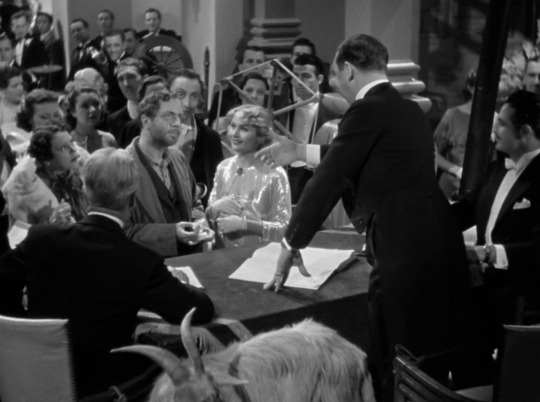#gregory la cava
Text


It's surprising how fast you can go downhill when you begin to feel sorry for yourself.
#my man godfrey#screwball comedy#gregory la cava#William Powell#alan mowbray#scenephile#movie quotes#film quotes#movie scenes#movie scene#film scene
81 notes
·
View notes
Text
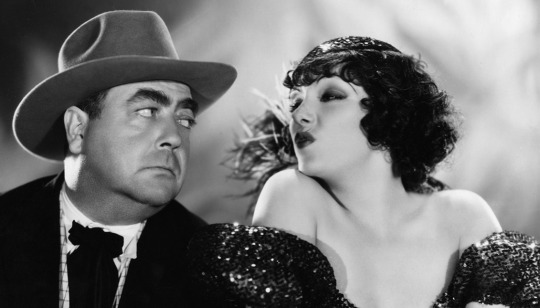
Eugene Pallette-Lupe Vélez "The half naked truth" 1932, de Gregory La Cava.
28 notes
·
View notes
Text
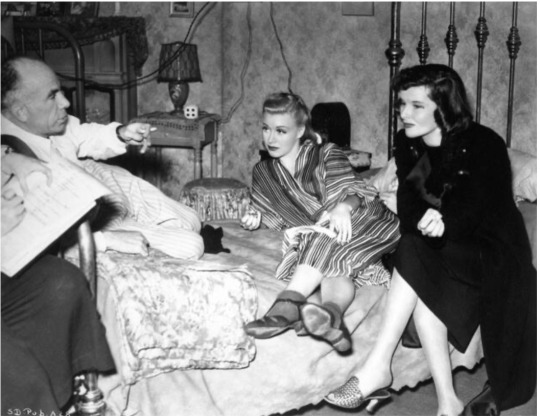
Director Gregory La Cava, Ginger Rogers, and Katharine Hepburn making STAGE DOOR (1937) based on the play by Edna Ferber and George S. Kaufman.
43 notes
·
View notes
Text
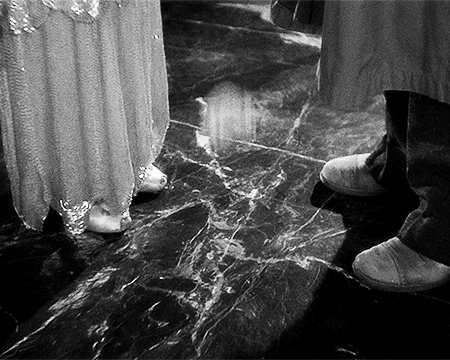
My Man Godfrey ~ Gregory La Cava ~ 1936
Follow Rhade-Zapan for more visual treats
#My Man Godfrey#Film#Gif#gregory la cava#film gif#30s film#classic hollywood#money#its a drag#loose change
10 notes
·
View notes
Text
San Francisco Silent Film Festival 2024: exposure to the shadows of the past
I was looking for Yoda when I bumped into Eadweard Muybridge. These are the circles film history moves in. This year’s San Francisco Silent Film Festival, the 27th, took place in the grandeur of the theatre of the Palace of Fine Arts, an elegant neo-classical folly of gigantic proportions, built as a temporary attraction for the 1915 Panama-Pacific Exposition and then rebuilt in more permanent…

View On WordPress
#Charles Bickford#Clara Bow#Double-exposures#Eadweard Muybridge#featured#Gregory La Cava#Julien Duvivier#San Francisco#San Francisco Silent Film Festival#silent film#Victor Sjostrom#William Wyler
3 notes
·
View notes
Text
My Man Godfrey (1936)
#my man godfrey#1936#carole lombard#william powell#alice brady#gail patrick#mischa auer#robert light#gregory la cava#movie scenes#1930s film#30s movies#comedy#screwball comedy#video
3 notes
·
View notes
Photo


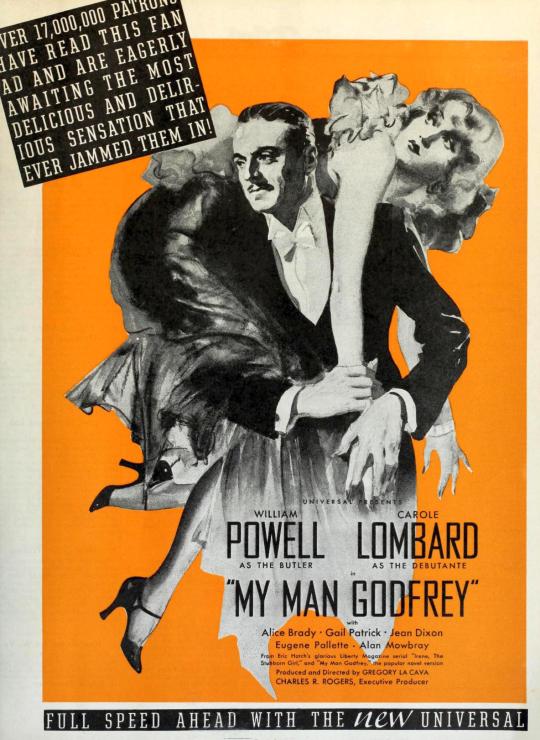

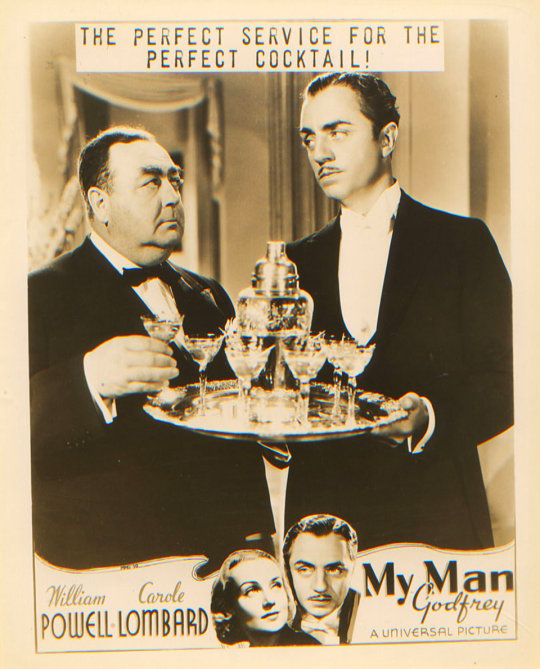

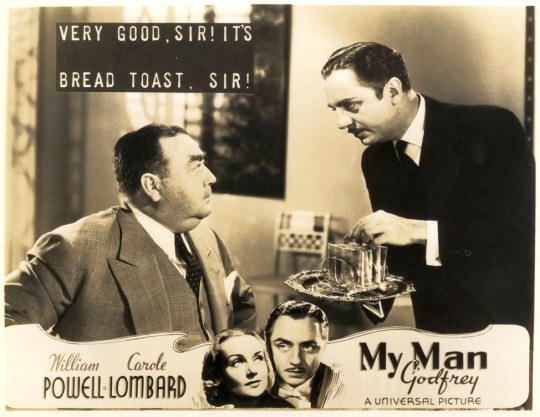
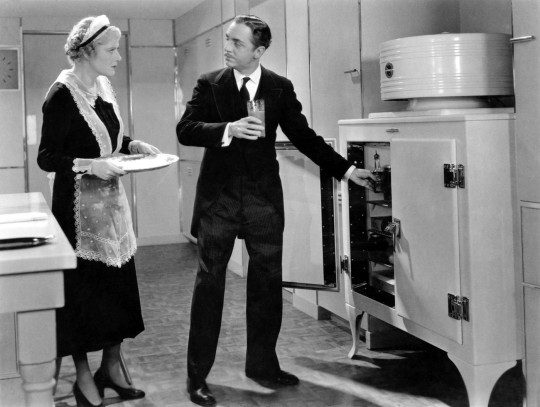
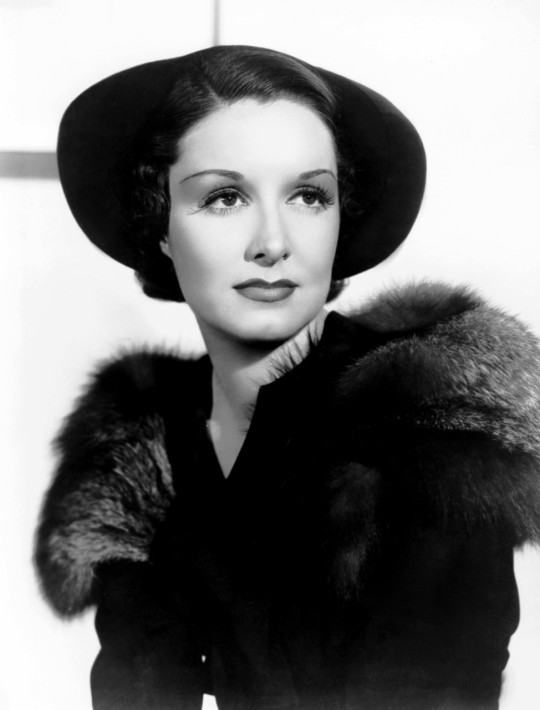
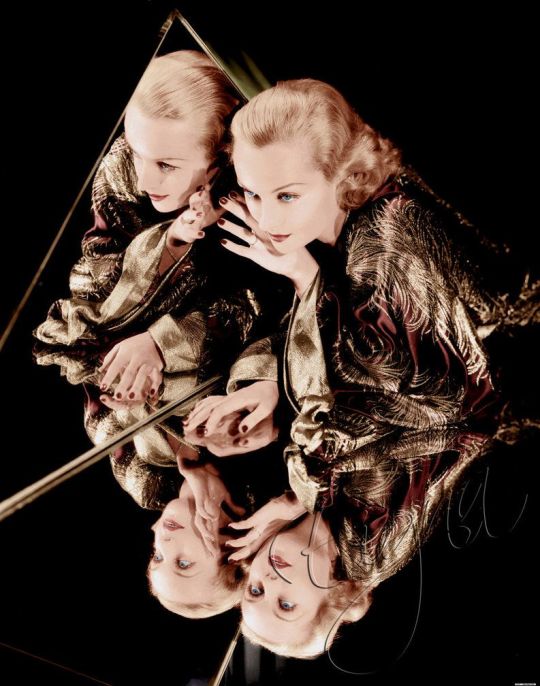
My Man Godfrey (1936) Gregory La Cava
February 8th 2023
#my man godfrey#1936#gregory la cava#william powell#carole lombard#alice brady#eugene pallette#gail patrick#mischa auer#jean dixon#alan mowbray#franklin pangborn#jane wyman
32 notes
·
View notes
Text
Another new episode! Getting into the home stretch!
Script below the break
Hello and welcome back to The Rewatch Rewind! My name is Jane, and this is the podcast where I count down my top 40 most frequently rewatched movies in a 20-year period. Today I will be discussing number 8 on my list: Universal Pictures’ 1936 screwball comedy My Man Godfrey, directed by Gregory La Cava, written by Morrie Ryskind and Eric Hatch, based on a book by Eric Hatch, and starring William Powell and Carole Lombard.
The rich and spoiled Bullock sisters, Irene (Carole Lombard) and Cornelia (Gail Patrick), are participating in a scavenger hunt that requires them to find a “forgotten man,” so they race to a shanty town at a city dump. Cornelia gets there first and approaches a homeless man named Godfrey (William Powell), who finds her rude and condescending and therefore refuses to take her offered $5, instead causing her to fall into an ash pile. Irene is amused by Godfrey’s treatment of her sister/rival, and after a brief conversation, Godfrey is amused enough by Irene to agree to be her forgotten man. Irene is so grateful to him for helping her win the scavenger hunt against Cornelia that she offers him a job as the butler for their wacky family, and he accepts without having any idea what he’s in for.
I remember being introduced to this movie rather early in my foray into old Hollywood back in 2002. I can’t recall my exact first impressions, but I’m pretty sure I had seen it several times and was already kind of obsessed with it before I started keeping track of the movies I watched. Once I started keeping track, I watched My Man Godfrey six times in 2003, three times in 2004, three times in 2005, twice in 2007, once in 2008, twice in 2009, once in 2010, twice in 2011, once in 2013, once in 2014, once in 2017, once in 2018, twice in 2019, twice in 2020, once in 2021, and once in 2022.
The main thing that initially drew me to this movie was its silliness. Based on the movies I’ve talked about on this podcast so far, I think it’s pretty clear that I love to watch a bunch of ridiculous characters having a fun romp, and that’s what a lot of My Man Godfrey is. Angelica, the scatterbrained mother of the Bullock family, played delightfully by Alice Brady, is one of the silliest characters in any movie ever, and when I was a young teen, all she had to do was open her mouth to crack me up. Now I find some of her antics a bit grating, which they are definitely meant to be, but some of her lines do still make me laugh every time, like, “I’m positive I didn’t ride a horse last night because I didn’t have my riding costume on!” and “If you’re going to be rude to my daughter, you might at least take your hat off!” and, in response to Godfrey saying that he sold short to save the family from financial ruin, “I don’t understand, you sold short? You mean, gentlemen’s underwear?” My brother was particularly tickled by that last one as a child, to the point that when we played The Sims together, we created a character named Gentleman’s Underwear after that line.
Angelica is far from the only silly character in this movie, and what I love about the whole ensemble is that each character is entertaining in a different way. Angelica is scatterbrained and doesn’t really care what’s going on, while her husband Alexander (played by Eugene Pallette) has lost track of what’s going on mostly because he’s so fed up with his wife’s ridiculousness. And then there’s Carlo (played by Mischa Auer) who is Angelica’s “protégé,” and I’m still not really sure exactly what that means. I can’t tell if it’s a euphemism, or if she’s like, supposed to be teaching him piano? We definitely see him playing piano, and eating, and impersonating a gorilla, and reading to Angelica, and that seems to be all he does. So unclear what his purpose is, but he is amusing. On the other hand, Molly (played by Jean Dixon, who also played Edward Everett Horton’s wife in Holiday) has the very clear purpose of being the Bullock family’s maid. Her dry, sarcastic wit is amusing in an entirely different way that I love very much. There’s also Tommy Gray (played by Alan Mowbray), a friend of the Bullock family who also happens to recognize Godfrey from their college days. Not wanting to reveal that he came from a wealthy Boston family, Godfrey says that he was Tommy’s valet in college, forcing Tommy to try to invent a story explaining why Godfrey wouldn’t have given him as a reference when the Bullocks hired him. Tommy seems like a relatively normal guy who isn’t particularly bright. Watching him flounder in that scene could have easily become uncomfortable, but they managed to portray it in a way that’s just silly. And his invention of a wife and five children for Godfrey adds to the confusion and tension behind the main romance in the movie.
If you’ve listened to previous episodes of this podcast and have an especially keen memory, you may recall that Gregory La Cava also directed Stage Door, which was number 31 on my list and came out the year after My Man Godfrey. I’m not sure how much say he had in the casting of both of those movies, but I enjoy that there are several people who appeared in both, such as character actors Franklin Pangborn and Grady Sutton, neither of whom was credited in My Man Godfrey but both of whom make memorable appearances. The most notable cast member the two movies have in common is Gail Patrick, who was Ginger Rogers’s main rival besides Katharine Hepburn in Stage Door and Cornelia Bullock in My Man Godfrey. In both of these, as in most of her movies, Patrick’s character is rather unpleasant, but Cornelia is a bit more complex than that, and she fascinates me. She’s bitter and spoiled and mean to her sister and can’t decide if she wants to seduce Godfrey or hurt him or both. After Godfrey tells her what he thinks of her, she tries to frame him for robbery by hiding her pearl necklace under his mattress, but he manages to find it and hide it better before the police search his room. Cornelia is so insistent that it must be under the mattress that the police get suspicious and ask why she’s so sure of that, to which she responds with the amazing and thoroughly unconvincing line, “I read that that’s where people put things when they steal them!” Shockingly, even after all of this, the story actually redeems Cornelia somewhat. Godfrey is able to save the family financially by pawning her necklace, and after he reveals this he tells her that he, too, was once a spoiled child, and that she has the potential to be a good person if she so chooses. Cornelia is visibly moved by his words, and while we unfortunately never see her again after that scene, I like to believe that she takes them to heart and stops being so awful going forward.
But as much as I love all the supporting characters, I don’t think I’d have watched this movie nearly as many times if not for the leads. William Powell brings just the right combination of sophistication and jadedness to the role of Godfrey, making it easy to believe that he was once a rich man but lost everything he had to a woman he loved who betrayed him. It’s beautiful to watch him rediscover his own purpose and humanity in response to the Bullocks’ kindness and choose to focus on the positive aspects of their quirks. When William Powell was offered the role of Godfrey, he agreed to take it only if Carole Lombard would play Irene, knowing that she would be perfect, and he was completely correct. Lombard absolutely kills it as Irene, flawlessly combining the dramatic naïveté of an overgrown toddler with a genuine desire to be a good and mature person. And the way Powell and Lombard play off each other is utterly delightful. Their first conversation sets up their dynamic beautifully – he’s rather amused by her, but she takes everything he says extremely seriously. Like when she asks him, “Why do you live in a place like this when there are so many nice places?” and he responds, “It’s because my real estate agent felt that the altitude would be very good for my asthma,” she doesn’t seem to know that he’s joking, and says, “Oh my uncle has asthma!” And he just rolls with it and replies, “No! Well, now there’s a coincidence!” This is already funny as written, but their delivery and facial expressions make it so much funnier. Then probably my favorite part of the movie is when Irene is sulking and trying to get Godfrey to notice her, but she mostly just comes across as ridiculous, and Cornelia is heckling her mercilessly. Godfrey is trying to act uninterested, but it’s clear from a few of his glances in her direction that he really does want to give her the attention she craves. It’s readily apparent from all of their scenes that they both thoroughly understood the assignment and knew how to play off each other. Powell and Lombard had worked together twice before and had even been briefly married to each other from 1931 to 1933. Despite the fact that things didn’t work out between them romantically in real life, they remained good friends, and seem to have only used their history to bring out the best performance in each other here. It is kind of funny that Godfrey keeps telling Irene that she’s way too young for him because it’s like, “You clearly didn’t think she was too young when you married her five years ago!” Mostly, though, it just makes me really happy as someone who has no interest in pursuing romantic relationships to know that it was Powell and Lombard’s post-divorce friendship that led to possibly the best movie that either of them ever made. It’s so encouraging to see the evidence that sometimes the relationship between two people can actually get better when they stop trying to make it romantic.
However, it took me a while to see things that way, because in the movie itself, Godfrey and Irene do end up together romantically. Once I learned that the actors were divorced in real life, my first thought was more, “Wow, amazing that they could still pretend to be in love after falling out of love.” In more recent rewatches, I’ve come to realize that the romance in the movie is very weird – which, to be fair, is quite usual for screwball comedies – but I think as an obliviously aromantic teenager it greatly informed what I thought romance was. Irene meets a nice man who helps her win a game against her awful sister and decides to be in love with him, so all she has to do is convince him that he’s also in love with her. Not understanding that romantic attraction was a thing that I was not experiencing, teenaged me thought that was how that worked: you just pick somebody and decide you have a crush on them, and if the other person has also picked you to be their crush, romance is born. Right? Apparently not. Anyway, in more recent rewatches, when it gets to the part where Godfrey tells Irene, “You’re grateful to me because I helped you to beat Cornelia. And I’m grateful to you because you helped me to beat life. But that doesn’t mean that we have to fall in love,” I’m like, “Correct! It doesn’t mean that! You don’t have to fall in love!” But the movie implies that Godfrey is suppressing his feelings for Irene because of the previous bad relationship that led to his homelessness, and it expects us to all be on board with the way Irene follows him after he quits and basically forces him to marry her. The older I get, the more this ending bothers me. I realize that it’s meant to be part of the screwball silliness of it all, and that it was inevitable for a movie like this to make the male and female lead end up together, but it’s like, can we maybe make sure that Godfrey is on board with that first? I can very much see their marriage going the same way as that of the actors who played them, with Irene and Godfrey ultimately concluding that they’re better suited as friends than lovers. But again, as a young person watching this movie, I thought their relationship was beautiful. Soon after I first got really into My Man Godfrey, my friend had a Build-A-Bear birthday party, and I named my bear Godfrey. I can’t remember who I was talking to or how this came up, but I remember making the declaration that if I was still single at 40, I would marry that Godfrey bear. So if you’re listening to this, consider yourself invited to our wedding in seven years. It probably won’t be much weirder than Irene and Godfrey’s wedding at the end of this movie.
There is another element to My Man Godfrey besides its silliness and unconvincing romance that makes it particularly fascinating. While most 1930s screwball comedies seem to be intended to help audiences temporarily forget about the hardships of the Great Depression, My Man Godfrey uses the Depression as a big part of the plot. The rich are portrayed as frivolous and ridiculous, while the homeless “forgotten men” are portrayed as resilient and noble. Godfrey reveals to Tommy that after having his heart broken, he intended to drown himself in the river, but seeing people living at the dump next to the river, determined to survive despite their circumstances, made him change his mind. The hard times even impact the well-to-do, with Alexander Bullock nearly losing everything in bad investments. At first it seems odd that Godfrey would use the money from Cornelia’s necklace merely to help the rich snobs, but then it’s revealed that in addition to that, he converted the dump he used to live in to a nightclub, creating jobs, and affordable housing. And all of that was possible because the jobless men convinced Godfrey to keep living, then Irene was nice enough to employ Godfrey as a butler, and Cornelia was bitter enough to try to frame him for robbery. I assume that doing something like that would not have been nearly as easy as the movie makes it look, but I appreciate that instead of leaning into the pure escapism of so many films from that era, My Man Godfrey says, “Yes, times are hard, but don’t give up hope. Things can improve unexpectedly at any time. And small kindnesses can add up to make a very big difference.” And that message continues to resonate 87 years later. So while this is mostly a very silly comedy, its genuine moments showing the importance of human connection help keep it from descending into complete and utter chaos like some other screwball comedies I could name.
And perhaps it was that touch of seriousness that led this mostly silly comedy to six Oscar nominations: Gregory La Cava for Best Director, Eric Hatch and Morrie Ryskind for Best Adapted Screenplay, William Powell for Best Actor, Carole Lombard for Best Actress, Mischa Auer for Best Supporting Actor, and Alice Brady for Best Supporting Actress. This made My Man Godfrey the first movie to be nominated in all four acting categories, which isn’t saying much because that was also the first year that the Oscars had four acting categories, but it remains the only film to this day to be nominated in all four acting categories without being nominated for Best Picture. And it was the only movie to be nominated in those six categories without winning anything until American Hustle, 77 years later. Of all the people nominated for Oscars for My Man Godfrey, only Alice Brady would ever win one, for In Old Chicago the following year. The director and one of the writers would each be nominated once more, also the following year, for Stage Door. William Powell had been nominated once before, for 1934’s The Thin Man, and would be nominated again for 1947’s Life With Father. But this was the only nomination for both Mischa Auer and Carole Lombard. Lombard in particular really wanted an Oscar and moved on to dramatic roles for a few years hoping that would help, but it didn’t. So she briefly returned to comedy before her career and life were tragically cut short by a plane crash in 1942, when she was only 33 years old. So, my age. I feel like, had Carole Lombard lived longer and continued to make more films in a similar vein, she probably would have made it into more than one of my top 40. The more I rewatch My Man Godfrey, the more impressed I become with her performance. This is one of the few old movies that actually has a blooper reel available, and that shows just how different her normal speech and facial expressions and mannerisms were from Irene’s. I have watched and enjoyed several of Lombard’s other films, but a lot of them are a bit too silly even for me, and I really wish she could have been in more of the still fun and kooky but not-quite-as-screwball-as-the-‘30s comedies that were just starting to become popular around the time of her death. But at least we get to see her in My Man Godfrey. Thank you, William Powell.
My Man Godfrey was remade in 1957, and I watched that version one time in 2003, reacted with, Ew, they ruined it,and have never rewatched it. Maybe I will someday, just to see if it’s as bad as I remember it. No offense to that cast – there was no possible way to reach the standard set by the original. Sometimes remakes are great, but sometimes the original was already perfect and shouldn’t be messed with, and in my opinion, My Man Godfrey absolutely falls into the latter category. So what I’m saying is, if this podcast has made you want to watch this movie, make sure you get the 1936 version.
Thank you for listening to me discuss another of my most frequently rewatched movies. Next week I will be joined by not one but two very special guests, to discuss the longer of the two movies I watched 30 times, which is going to be very fun, so stay tuned for that. As always, I will leave you with a quote from that next movie: “Wait up! Wait for me! Not you, I don’t even know you!”
#my man godfrey#gregory la cava#william powell#carole lombard#this movie is so good#the rewatch rewind
9 notes
·
View notes
Photo
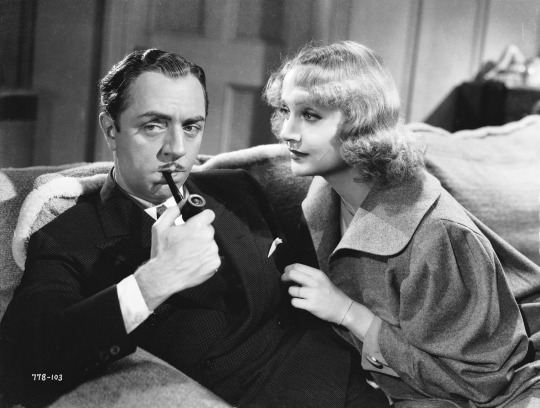
William Powell and Carole Lombard in My Man Godfrey (Gregory La Cava, 1936)
Cast: William Powell, Carole Lombard, Alice Brady, Gail Patrick, Eugene Pallette, Jean Dixon, Alan Mowbray, Mischa Auer, Pat Flaherty, Robert Light, Franklin Pangborn. Screenplay: Morrie Ryskind, Eric Hatch, based on a novel by Hatch. Cinematography: Ted Tetzlaff. Art direction: Charles D. Hall. Film editing: Ted J. Kent, Russell F. Schoengarth. Music: Charles Previn, Rudy Schrager.
My Man Godfrey is not only a textbook example of the screwball comedy, it also has all the familiar elements of the romantic comedy: the "meet-cute," the fallings-in and fallings-out, and the eventual happily-ever-after ending. But the rom-com is distinct from the screwball comedy, and the latter tends to subvert the former. William Powell is his usual suave and sophisticated self, and nobody except Lucille Ball ever played the beautiful nitwit better than Carole Lombard. But are Godfrey (Powell) and Irene (Lombard) really made for each other? Isn't there something really amiss at the ending, when Irene all but railroads Godfrey into marriage? Knowing that marriage is an inevitability in romantic comedies, I kept wanting Godfrey to pair off with Molly (Jean Dixon), the wisecracking housemaid who conceals her love for him. And even Cornelia (Gail Patrick), the shrew Godfrey has tamed, seems like a better fit in the long run than Irene, with her fake faints and tears. The film gives us no hint that Irene has grown up enough to deserve Godfrey. But perhaps it's just better to take it for what it is, a hybrid of the two subgenres, and to enjoy the wonderful performances by Alice Brady, Eugene Pallette, Alan Mowbray, and Mischa Auer, and the always-welcome Franklin Pangborn doing his fussy, exasperated bit. A lot could be written, and probably has been, about how the film reflects the slow emergence from the Depression, with its scavenger-hunting socialites looking for a "forgotten man." a figure that only three years earlier, in Gold Diggers of 1933 (Mervyn LeRoy), had been treated with something like reverence in the production number "Remember My Forgotten Man." Had sensibilities been so hardened over time that the victims of the Depression could be treated so lightly? In any case, My Man Godfrey was a big hit, and was the first movie to have Oscar nominations -- for Powell, Lombard, Auer, and Brady -- in all four acting categories. It was also nominated for director and screenplay, though not for best picture.
8 notes
·
View notes
Text
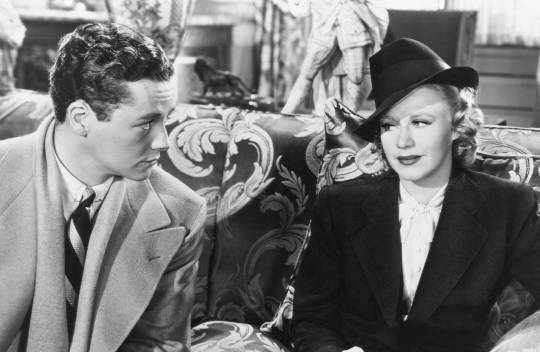
Seen in 2023:
Fifth Avenue Girl (Gregory La Cava), 1939
#films#movies#stills#Fifth Avenue Girl#Gregory La Cava#Ginger Rogers#Tim Holt#Hollywood#1930s#seen in 2023
2 notes
·
View notes
Photo
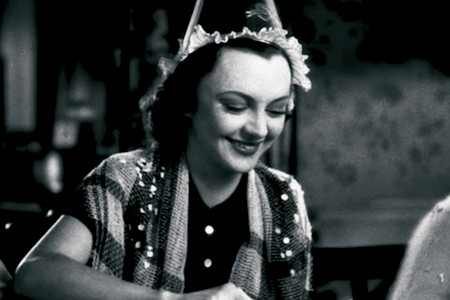
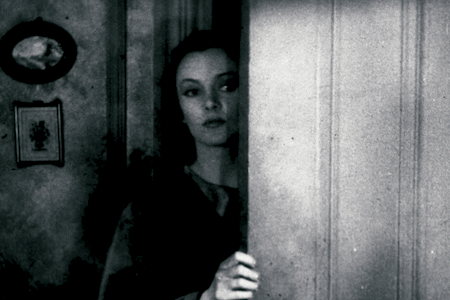
Isn't there enough heartache in the theater without our hating each other? ANDREA LEEDS (Kay Hamilton) in STAGE DOOR (1937) | dir. Gregory La Cava
#1930's cinema#`1930's#1937#stage door#andrea leeds#gregory la cava#oldhollywood#filmblr#classicfilmsource#filmedit#dramaedit#dramagif
3 notes
·
View notes
Text


He's the only butler we ever had who understood women.
#my man godfrey#Gregory La Cava#william powell#Godfrey#Carole Lombard#Alice Brady#scenephile#movie quotes#film quotes#movie scenes#movie scene#film scene#screwball comedy film#screwball comedy
32 notes
·
View notes
Text
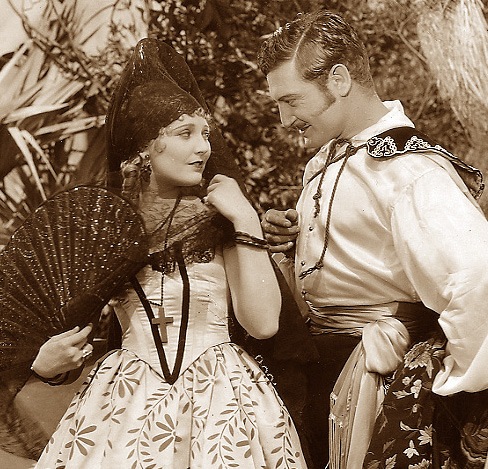
Thelma Todd-Richard Dix "The gay defender" 1927, de Gregory La Cava.
12 notes
·
View notes
Text
Fifth Avenue Girl

Ginger Rogers did some of her best work for Gregory La Cava in STAGE DOOR (1937) and had some very good scenes (when she didn’t start pouring on the dramatics) in his PRIMROSE PATH (1940). But there’s something off in her performance in his FIFTH AVENUE GIRL (1939, Criterion Channel, TCM). She’s an unemployed woman who meets a neglected self-made millionaire (Walter Connelly) by accident. After he takes her out to celebrate his birthday, he decides to hire her to pretend to be his mistress in hopes it will make his family pay more attention to him. She has her moments — a drunken dance at a posh nightclub; telling off the chauffeur (James Ellison), who can’t admit he’s in love with the boss’ daughter (Kathryn Adams); pretending to have a heart-to-heart with Connelly’s wife (Verree Teesdale) — but in other places her deadpan delivery is just dead. My mind kept drifting during her scenes as I imagined how much better Jean Arthur or Barbara Stanwyck would have been in the role. As a result, a lot of the comic focus falls on the family, and it’s here that La Cava shines. Teesdale is deliciously haughty as the wife who’s been running around with other escorts but doesn’t like it when her husband has an escort of his own. Adams has some delicious wisecracks, usually at her mother’s expense. And Tim Holt, as the son, seems to be rehearsing to play George Minafer until he starts falling for Rogers. There’s also a wonderful turn by Franklin Pangborn as the butler and an unbilled bit by Jack Carson as an amorous sailor singing his girlfriend a silly song. It’s all meant to skewer the rich as posturing fools, but if Rogers is the alternative, I’ll take the money, please.
1 note
·
View note
Photo
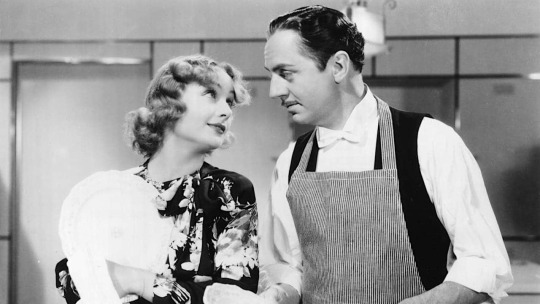
My Man Godfrey https://bit.ly/3CypeOk William Powell wouldn’t make screwball comedy My Man Godfrey without Carole Lombard as his co-star. It’s not every actor who insists on getting the ex-wife in to play love scenes (they’d divorced three years earlier) but watching the results you can see why. It’s an exquisite film, superbly directed and brilliantly written but it’s the acting that is the best thing about it. David Niven and June Allyson would star in a remake in 1957, but good though they are, they stand no chance against Powell and Lombard in full spate in 1936, not to mention the whole rest of the cast. There isn’t a role in this film that isn’t filled by … Read more
0 notes
